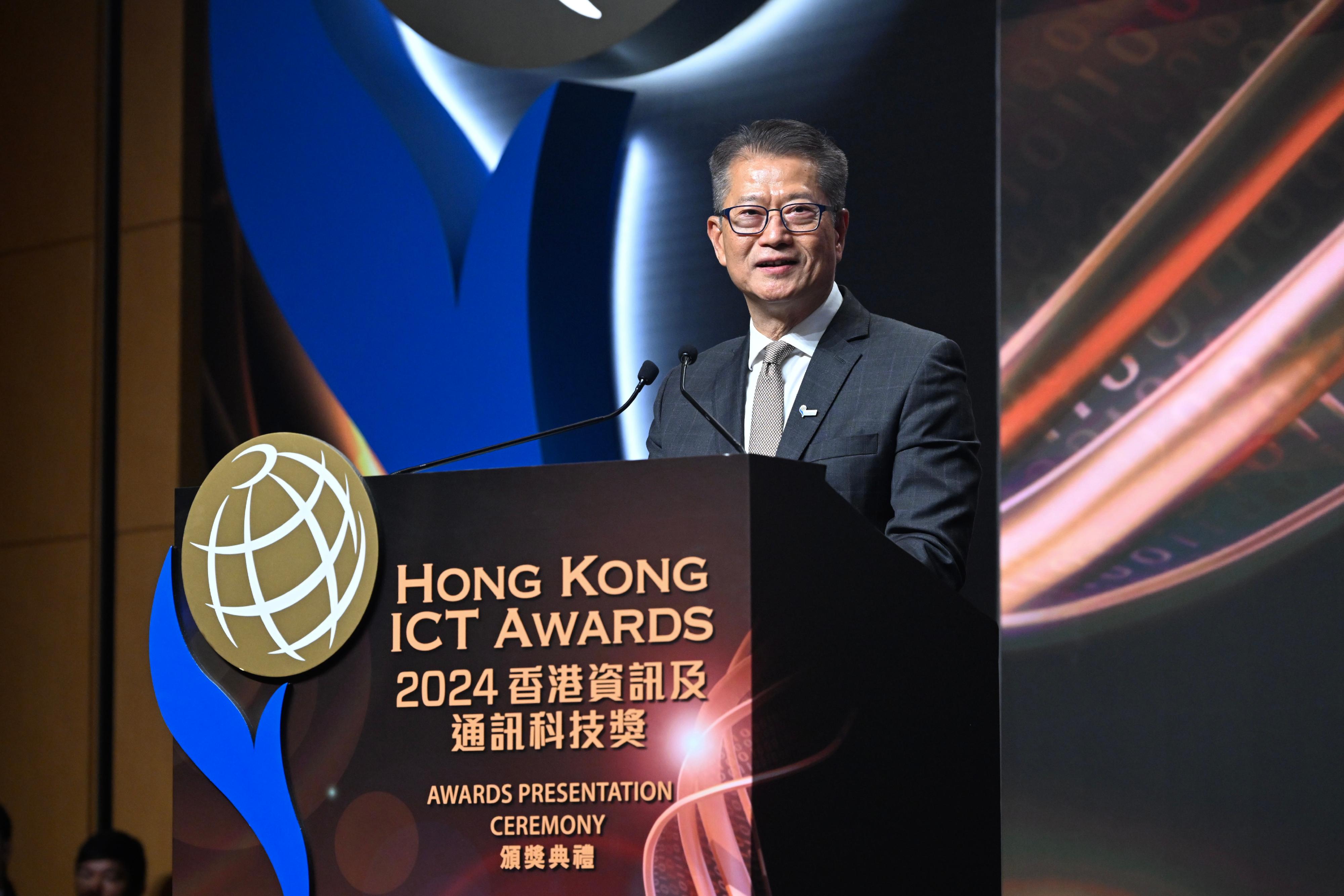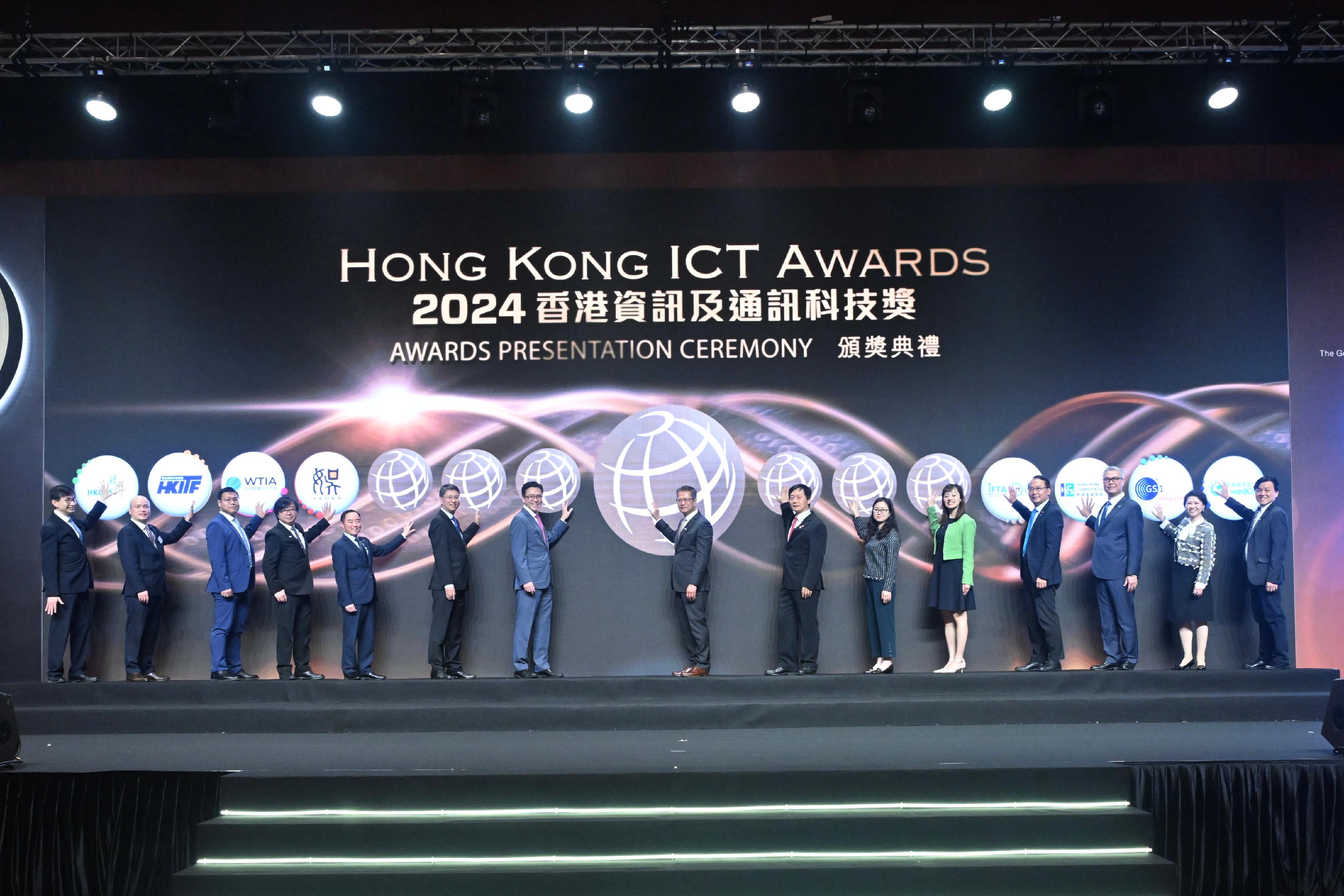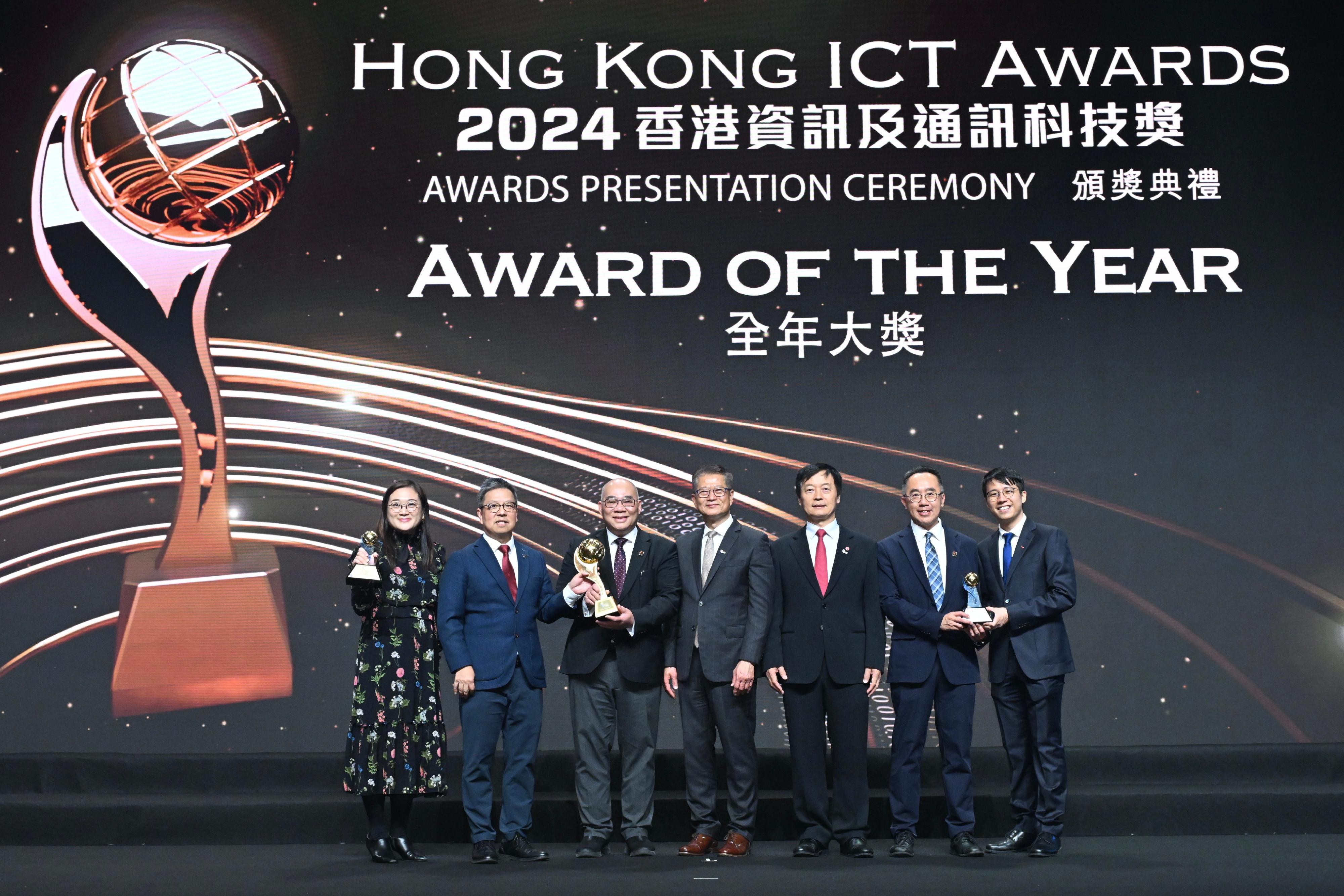Following is the speech by the Secretary for Financial Services and the Treasury, Mr Christopher Hui, at the Hong Kong Institute of Certified Public Accountants (HKICPA) 2024 Annual Dinner today (November 22):
Roy (President of the Hong Kong Institute of Certified Public Accountants, Mr Roy Leung), æ�Žæ°¸å‹�副特派員 (Deputy Commissioner of the Office of the Commissioner of the Ministry of Foreign Affairs of the People's Republic of China in the Hong Kong Special Administrative Region (HKSAR) Mr Li Yongsheng)ã€�æ�Žæ—鴻副部長 (Deputy Director-General of the Department of Administration and Finance of the Liaison Office of the Central People's Government in the HKSAR, Mr Li Xuhong), distinguished guests, ladies and gentlemen,
Good evening. It is my great pleasure to join you all at the 2024 Annual Dinner of the Hong Kong Institute of Certified Public Accountants.
The theme of this year's dinner is "Building Community", which I believe is at the top of the HKICPA's agenda as it continues to reposition itself and refocus its strategic plan on furthering the development of the profession under the new regulatory regime. At the same time, it also aptly summarises the underlying principle of the various initiatives that have been rolled out by the HKSAR Government over the past year.
In order to build an accounting community with high standards of professionalism and integrity, work has to be done both from within and without.
As sustainability disclosure has become an integral part of the global financial landscape, the development of green and sustainable finance in Hong Kong presents the golden opportunity to revitalise and expand the accounting community. The HKICPA has seized the occasion to lead the profession in taking an active role in the initiative, especially in our pursuit to be among the first jurisdictions to align the local sustainability disclosure requirements with the international standards issued by the International Sustainability Standards Board (ISSB).
The HKICPA's earlier consultation on the draft Hong Kong Standards is only the first step towards the development of the sustainability disclosure ecosystem in Hong Kong. Ongoing collaborations among the local accounting profession, other financial services sectors and the international community are crucial to enable credible implementation of disclosures, provide necessary support to and facilitate utilisation of technological solutions by preparers, reporting and assurance professionals, and sustainability-related service providers. These are all new pathways for the accounting sector to expand its presence and influence in the local, regional and global markets, which can lend to it renewed attraction to young talent.
In parallel to the ongoing endeavours to solidify the local accounting community, efforts are also being made to reinforce the long-standing connections with our counterparts from other local sectors as well as the Mainland and overseas.
Last month, the HKICPA hosted the 2024 Cross-straits, Hong Kong and Macau Accounting Profession Conference, which was the first after the suspension since 2019 due to the pandemic. I learned that it was a great success, bringing together accounting and other market leaders to engage in in-depth discussion and idea exchanges on salient development issues. Notably, it offered much inspiration on opportunities and challenges under the global sustainability development trends.
Most recently, we, in collaboration with the HKICPA, the Inland Revenue Department and the Accounting and Financial Reporting Council (AFRC), have announced the initiative to require disclosure of practising certificate numbers in auditors' reports and corporate tax returns. It is a proactive response to the profession's concern over bogus CPAs (certified public accountants) and audit malpractices, which, as you would certainly agree, undermines the credibility of not only the profession but also financial reporting of the Hong Kong markets in general.
By requiring disclosure of practising certificate numbers, the initiative aims to enhance the accountability of auditors' report signatories, heighten the awareness of users of accounting services about the importance of audit quality and, at the same time, facilitate the identification and elimination of black sheep from the sector. We believe with the concerted efforts of the sector, regulator, enforcement agents and the general public, the professional foundation of the local accounting community can be reinforced. With the members' consultation on the amended professional standards under way, your support and insight would be invaluable in bringing the initiative into full play.
Ladies and gentlemen, with the new regulatory regime of the accounting sector entering its third year of operation, I am glad to see that the HKICPA has been proactive in maximising the value of the Institute as a statutory professional body to drive the various development initiatives in the pipeline. We look forward to the continued collaboration with the HKICPA, the AFRC and each and every one of you to create opportunities for the advancement of the accounting profession, the financial markets and the Hong Kong community as a whole.
Last but not least, my sincere thanks to the Institute for inviting me to this auspicious occasion, and may I wish you all good health and the best of business in the coming year. Thank you.


